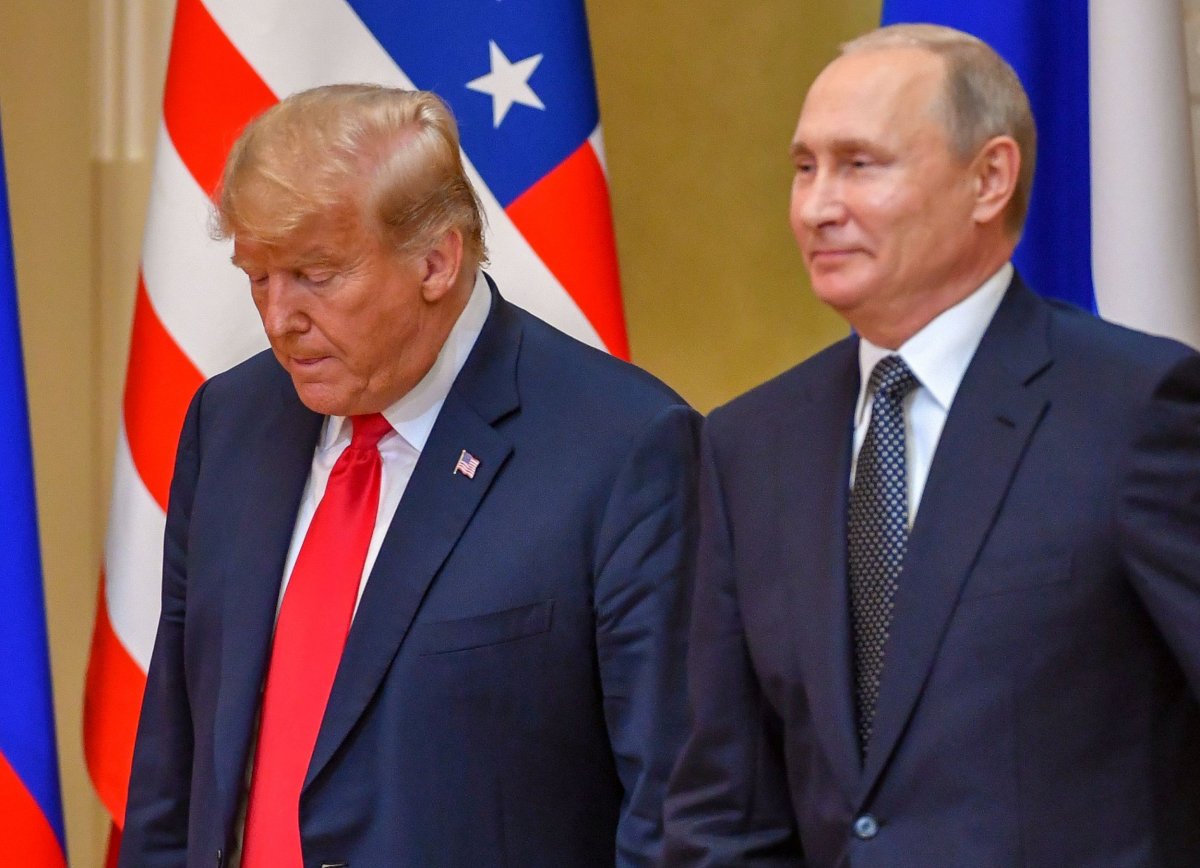What exactly happened in Helsinki? Washington—from Congress to the administration to the media—has been left scratching their heads. Trump's dealing with Russia is like vaudeville meets a spy thriller—Monty Python meets Tom Clancy.
Is the president playing three-dimensional geopolitical chess—deftly maneuvering to drive a wedge between Russia and China—or is he stumbling from situation to situation in an improv act that would make John Cleese blush? This sentiment was perfectly captured at a press conference following the summit: just as President Trump spoke to recant his comments in Helsinki disavowing the U.S. intelligence community, the lights suddenly went out, leaving the room in total darkness. His response? "Whoops, they just turned off the lights, that must be the intelligence agencies." A comic episode to be sure, but nevertheless a bitter aftertaste remained.
Some of Trump's opponents began mentioning the t-word—treason—while his supporters probably wouldn't protest even if Trump handed over Alaska to Russia, as some in Moscow indeed demand.
Mr. Trump still did not provide the rationale as to why he is being so soft on Russia, while his administration has provided Javelin anti-tank missiles to Ukraine and supplied light weapons to Georgia, something President Obama refused to do.
The Trump administration has also imposed massive sanctions on Russian officials and oligarchs, in which one of them, Oleg Deripaska of Basic Element holding group, had to disinvest himself from the majority shareholding in his business in order to save the company.
In counter-sanctions, the Russian government is making the lives of ordinary Russians harder by closing U.S. consulates and denying a visa process, which was not easy to begin with. Moscow has also stopped importing certain medications, which makes the lives of sick Russians hell. But Russian people know how to suffer: they survived two world wars, a bloody revolution, a man-made famine, Stalin's terror, and a failing communist economy.
The majority of Western media said that the Trump-Putin meeting in Helsinki demonstrated that Putin was more dominant and powerful, which should be bizarre for the leader of a country which has a twelfth of the annual GDP of the U.S., and less than half of its living standards. Russian growth has been anemic of late, owing to corruption, a massive devaluation of the ruble, oil market volatility, Western sanctions, and an under-developed high-tech sector.

The press conference in Helsinki smacked of moral equivalency that is vintage Trump. During the election campaign, when confronted with Russian allies' track record of murdering people in Ukraine, shooting down MH17, the occupations of Georgia and the Crimea, and the murder of journalist Anna Politkovskaya and politician Boris Nemtsov, Trump famously said "We have a lot of killers. Well, you think our country is so innocent?"
His comments shocked everybody. By not assigning responsibility to Russia, Trump may have given a green light to Moscow to interfere in elections elsewhere in the world—and worse. He did not call Mr. Putin out on that. Moral equivalency between the U.S. and Russia is unacceptable.
But let's look at the bright side—it could have been worse. Trump did not hand over Crimea to Russia despite an earlier statement that Crimea may be Russian because they speak Russian there.
Mr. Trump also did not lift sanctions—because most are imposed by U.S. Congress. The fears of a fundamental change in the U.S. policy towards Russia are exaggerated, but bringing Putin back in from the cold is baffling. One explanation I have is that Mr. Putin is lured by Trump to leave his de-facto alliance with Mr. Xi in China. Yet, he did not explain this.
The policy of pulling Russia away from China is a sound realpolitik idea. However, it is easier said than done. It's hard to imagine that after twelve years of viewing the West as its main adversary, Russia will suddenly turn around and become friends with the U.S. and inimical towards China. Russia views China as America's foe and a growing market, especially for its natural resources and military technology.
Still, there are legitimate areas in which the United States and Russia can cooperate: The elimination of ISIS once and for all is another common goal in the region. On non-proliferation, both nations benefit from a nuclear-free Korean peninsula and Iran. But this is where it gets tricky: Putin supports JCPOA, the Obama-era Iran nuclear deal. He refused to publicly push for the Iranian withdrawal from Syria and to join the U.S. in taking measures that will lead to the dismantlement of Iran's nuclear arsenal. U.S. intensive sanctions are working, while curbing its oil exports benefits Russia.
To ensure American security, the whole of the U.S. government should continue to define our Russia policy. U.S. Congress has led on sanctions and denounced the moral equivalency of Helsinki. The National Security Council, the Defense Department, the State Department and intelligence experts all understand what Russia is. It is a real life geopolitical adversary of the U.S. and the West, not a reality TV contestant. So let the professionals do what they are paid to do: conduct U.S. foreign policy.
Ariel Cohen, PhD @Dr_Ariel_Cohen, is a Non-resident Senior Fellow at The Atlantic Council and Founding Principal at International Market Analysis Ltd. His book Russian Imperialism: Development and Crisis was published by Greenwood Praeger.
The views expressed in this article are the author's own.
Uncommon Knowledge
Newsweek is committed to challenging conventional wisdom and finding connections in the search for common ground.
Newsweek is committed to challenging conventional wisdom and finding connections in the search for common ground.
About the writer
To read how Newsweek uses AI as a newsroom tool, Click here.








